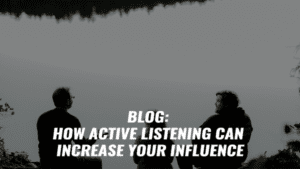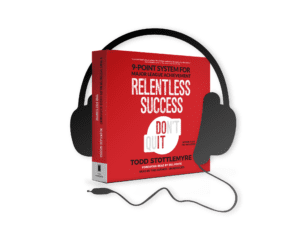Introduction
As a culture, we’ve become accustomed to cultivating an attitude of gratitude. We say grace before meals and count our blessings at special occasions like weddings and birthdays. But what are the benefits of being grateful? How can you incorporate gratitude into your daily routine so that it becomes second nature?
What is gratitude?
Gratitude is a feeling of thankfulness. It’s an attitude of appreciation and recognition for what you have in your life, whether it be big or small. Gratitude can be expressed by words or actions, directed towards others or yourself.
When we practice gratitude on a regular basis, we increase our happiness levels because we are focusing on things that bring us joy instead of dwelling on the negative aspects of our lives. When people feel gratitude toward others, they also tend to have healthier relationships with those people because they have higher self-esteem and more empathy towards others’ feelings as well as their own needs (Kashdan).
The science behind gratitude
Gratitude is defined as a positive feeling towards someone or something. It’s not just about saying thank you; it’s about appreciating the things that you have in life and being thankful for them.
Gratitude helps you to see the good things in life, even when they’re small. It allows you to appreciate what you have instead of focusing on what could be missing from your life. This can improve your mental well-being by making sure that all aspects of it are balanced out, rather than having only one part that needs improvement (such as happiness).
How to incorporate gratitude into your daily routine
- Write down three things you’re grateful for. The easiest way to incorporate gratitude into your daily routine is by writing down three things you’re grateful for at the end of each day and then reading it aloud–this can be done before bed or first thing in the morning, depending on what works best for you.
- Write a thank-you note. Another great way to express gratitude is through writing letters of appreciation that express how much someone means to you or how much their actions impacted your life (as well as sending them!). Writing thank-you notes has been shown to improve emotional well-being and reduce stress levels.*
- Give back by doing something nice for someone else! Whether it’s volunteering at an animal shelter with your kids or helping out with dinner one night when everyone else is busy working late hours, doing good deeds makes everyone feel better about themselves while also improving their health.*
the benefits of gratitude
Gratitude is the act of being thankful for what you have, and it can help you improve your mental well-being. Gratitude has been linked to a number of health benefits including:
- Improved physical health
- Increased energy levels
- Strengthening relationships with others
Gratitude can improve your mental well-being and help you see the good things in life.
A study published in the Journal of Personality and Social Psychology found that people who practice gratitude are more likely to report higher levels of happiness and meaning in their lives, as well as lower levels of depression and anxiety. They also tend to engage in healthier behaviors such as exercising more often or eating better food–which may help explain why they’re so much happier overall!
Gratitude can help you feel less stressed out about small things.
In one study published by researchers at Carnegie Mellon University, participants were asked about their biggest worries over the past month–and then asked again four weeks later (after being instructed on how to practice gratitude). Those who practiced gratitude reported feeling less worried than those who didn’t; moreover, these effects lasted even after controlling for baseline levels of pessimism among participants!
Gratitude can help you improve your physical health.
Gratitude can help you sleep better.
The practice of gratitude has been shown to improve sleep quality, reduce insomnia and even reduce inflammation in the body.
Gratitude helps you manage stress.
When we focus on what we’re grateful for instead of what’s stressing us out, our stress levels decrease significantly! This is because when we shift our focus away from negative thoughts and towards positive ones (like how much someone means to us), our brains actually begin producing endorphins which make us feel happier and more optimistic about life in general!
It can strengthen your relationships with others.
Gratitude is a powerful way to maintain and improve relationships. It’s a way of showing appreciation, and it can help you feel closer to others. If someone does something nice for you, express your gratitude by saying “thank you.” This is an easy way to strengthen the bond between two people who care about each other.
Gratitude also helps us feel less isolated or lonely, because we tend not to be grateful when we’re alone; instead we might feel sad or depressed when no one else is around us. So if there are people around who make our lives better–even just by being there–then gratitude will naturally arise as an expression of our appreciation for them!
How to practice gratitude
- Write down three things you are grateful for each day.
- Share what you are grateful for with someone else, either verbally or in writing (e-mail, text message, letter).
- Try to be grateful for the little things in life: a cup of coffee, a walk through the park, even something as simple as breathing fresh air after being stuck inside all day long on a rainy day can bring joy into our lives if we let it!
- Be grateful for the things we have instead of focusing on what we don’t have–for example: if I’m feeling stressed out about money issues then instead of dwelling on how much debt I have and how worried I am about paying off my student loans next month (which may cause me even more stress), try focusing instead on what makes me happy: spending time with friends and family; listening to music; reading books/magazines/articles online; watching movies etc…
Conclusion
Gratitude is an important part of mental well-being. It can help you feel more positive and optimistic about your future, as well as improve your relationships with others. The key is to make gratitude a habit in your life by taking time each day to reflect on what you have in life that makes it worth living.









